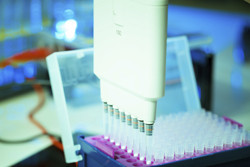Towards white and green biotechnology
The recent development of new sequencing technologies resulted in complete genomes of singular microorganisms and metagenomes extracted from environmental samples. However, compared to the rate of new genetic information accumulation, discovery of new biochemical reactions happens at a slow pace. 'The Microme project: A knowledge-based bioinformatics framework for microbial pathway genomics' (MICROME)(opens in new window) aimed to empower full scientific and biotechnological exploitation of knowledge derived from bacterial genomes. The four-year EU-funded project completed in 2013 brought together leading computational biologists, experimental microbiologists, and businesses focused on white and green biotechnology. Project members focused on developing a computational platform for extracting, structuring and storing, in updatable form, the enzymatic complement encoded in bacterial genomes. The obtained information was used to generate computational models of bacterial metabolism as well as to perform evolutionary and biotechnological analysis. The team produced extensive data sets describing the known reaction complement of all sequenced bacterial genomes. The final release comprised over 8 million gene-reaction associations derived from over 9 000 genomes. A public resource for biological facts integrated with a set of tools for model construction and testing was created. Metabolic models, which can be automatically updated with new releases of improved data sets, were generated using the developed software. Thirty tested models were released at the end of the project. Tools for evolutionary analysis of metabolic functions, genomic context analysis and retrobiosynthesis were also developed. Over the course of the project an integrated web portal was developed to provide public access to these data and tools. All data generated by MICROME is publicly available, regularly updated and shared with other public data resources, and continues to serve the research community. The project was acknowledged in 111 scientific publications. MICROME opened new avenues in evolutionary and biotechnological research, and provided a solid foundation for advances in green and white biotechnology.







